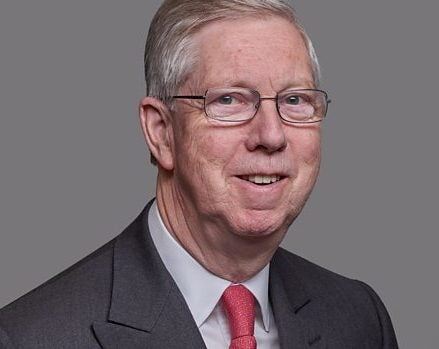
Politicians should do more to defend journalists who are subject to abuse “on an almost daily basis”, the chairman of the BBC has said.
Sir David Clementi said the abuse was becoming “increasingly explicit and aggressive”, particularly against female journalists, and that politicians should not “stand by and watch”.
He also urged social media companies to do more to scout out perpetrators who dished out abuse online.
Speaking at the Royal Television Society convention in Cambridge, Sir David said: “Speaking to our journalists, I have become increasingly aware of the abuse that some of them – particularly female journalists – are subject to, on an almost daily basis.
“We must support our journalists and call out the abuse they are receiving. These days, there is much more abuse. It is increasingly explicit and aggressive. And much of it occurs online.”
Clementi also highlighted heckling at press conferences and political events.
“It also occurs in plain sight, at press conferences and political gatherings on all sides,” he said. “Politicians cannot stand by and watch – they must confront any abuse, and make it clear that it is intolerable.
“The journalists of the BBC, when abused simply for doing their job, should know they have the determined support of the board to stamp it out.”
The corporation’s political editor Laura Kuenssberg has been the victim of online abuse, and was repeatedly hissed at and booed during Labour and Ukip press conferences this year.
She was also the subject of an online petition calling for her dismissal, which was taken down after a string of abusive comments.
Although he did not refer to any particular journalists by name, Clementi said: “Questions about government policies, which seem to some parts of our audience natural questions to ask, are regarded by others as impertinent and disrespectful.
“But holding those in power – or seeking power – to account, asking them what soundbites actually mean, is a key part of our job.
“It is the responsibility of our journalists to ask the question – even if it is direct, awkward or unwelcome.
“I have enormous respect for all journalists, not just BBC journalists, who do this day in, day out.”
Clementi said he was “following closely” the efforts of Twitter and Facebook to clamp down on online abuse.
“I hope the social media platforms do even more,” he added.
The Committee on Standards in Public Life is currently investigating online intimidation of MPs, who are also often the target of trolls.
Picture: BBC
Email pged@pressgazette.co.uk to point out mistakes, provide story tips or send in a letter for publication on our "Letters Page" blog
